Research Projects
English pronunciation is fun: Going digital for Spanish speaking young learners with the aid of Artificial Intelligence (e-ProFun) (Coordinated Project) (TED2021-130283B-C21 - TED2021-130283B-C22) (PROYECTOS DE TRANSICIÓN ECOLÓGICA Y TRANSICIÓN DIGITAL 2021 (Next Generation))
General Coordinator: María de los Ángeles Gómez González
Subproject 1 (S1): Effective English pronunciation in digital environments for the primary school EFL/CLIL class and beyond: Linguistic, pedagogical and didactic foundations
PI1: María de los Ángeles Gómez González
PI2: Fernando Fraga Varela
Funding: 112.000,00€
Subproject 2 (S2): Effective English pronunciation in digital environments for the primary school EFL/CLIL class and beyond: Artificial Intelligence and gamified learning implementations
PI1: Alfonso Lago Ferreiro
PI2: Carlos López Ardao
Funding: 109.500,00€
Period: 01/12/2022-30/11/2024
Outline: This project pursues three objectives:
- To develop a joyful, gender-equal, open access and sustainable CAPT e-platform that improves the English pronunciation, phonological awareness, intercultural understanding, and digital competences of SSYLE to be able to communicate effectively within and beyond EFL/CLIL primary school classrooms
- To train users – including EFL/CLIL teachers, learners, and researchers – in the materials and data derived from the project
- To exploit and disseminate results through educational materials, high-quality research publications and meeting participation, among other initiatives.
Research/Work Team:
S1: Dr María de los Ángeles Gómez González (USC), Dr Fernando Fraga Varela (USC), Dr Xosé Luis Regueira Fernández (USC), Dr Adriana Gewerc Barujel (USC), Dr Juli Cebrián Puyuelo (UAB), Dr Ana Rodríguez Groba (USC), Dr Esther Vila Couñago (USC), Dr Bronwen Evans (UCL), Dr Elisabetta Adami (University of Leeds), PhD Ángela González Villa (USC), PhD Uxía Fernández Regueira (USC).
S2: Dr Alfonso Lago Ferreiro (UVigo), Dr José Carlos López Ardao (UVigo), Dr María José Moure Rodríguez (UVigo), Dr Sergio Herrería Alonso (UVigo), Dr Miguel Rodríguez Pérez (UVigo), Dr Raúl Fernando Rodríguez Rubio (UVigo), Cándido López García (UVigo), Dr Andrés Suárez González (UVigo), Dr Martín López Nores (UVigo).
PHOTO GALLERY
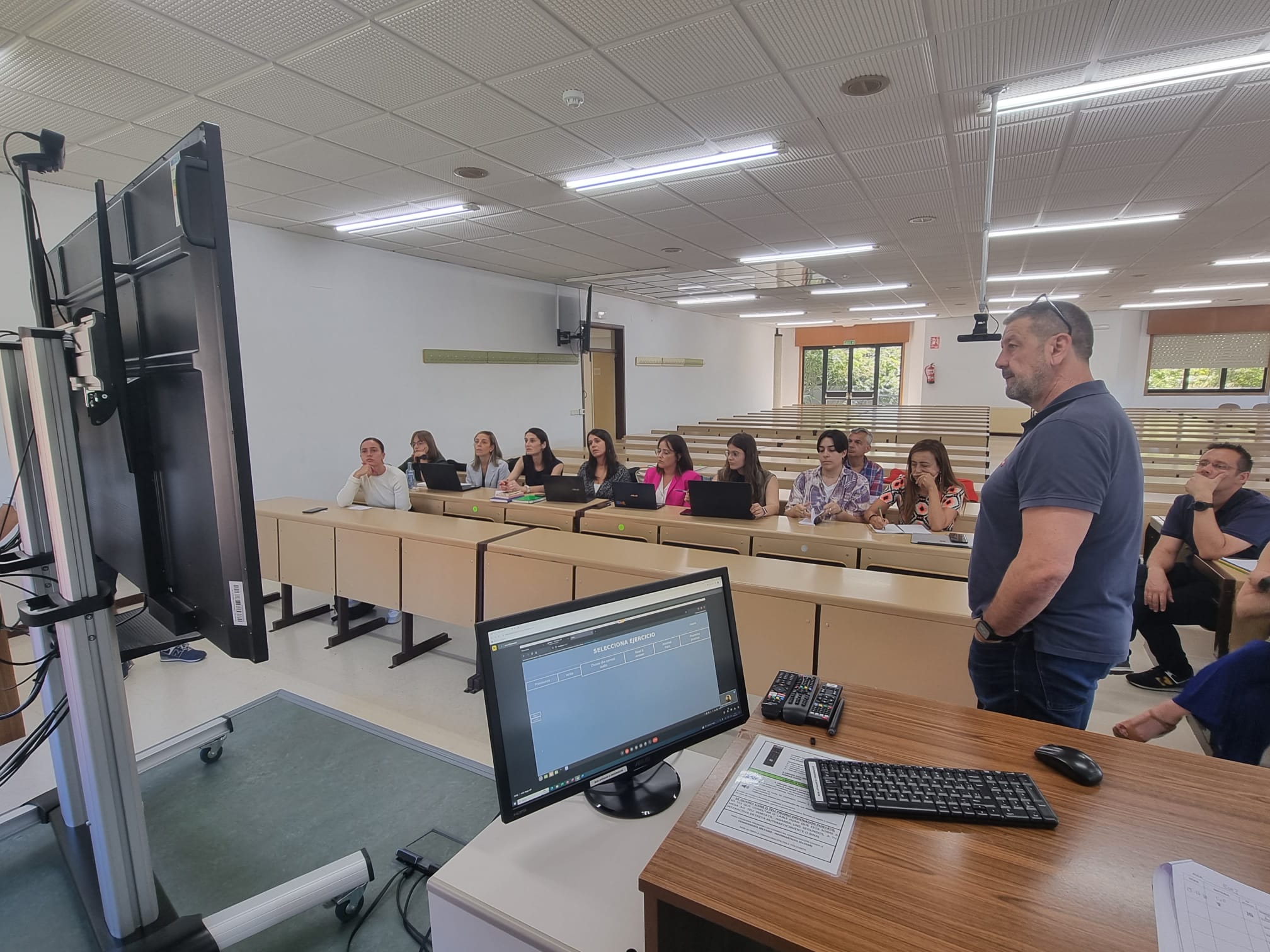
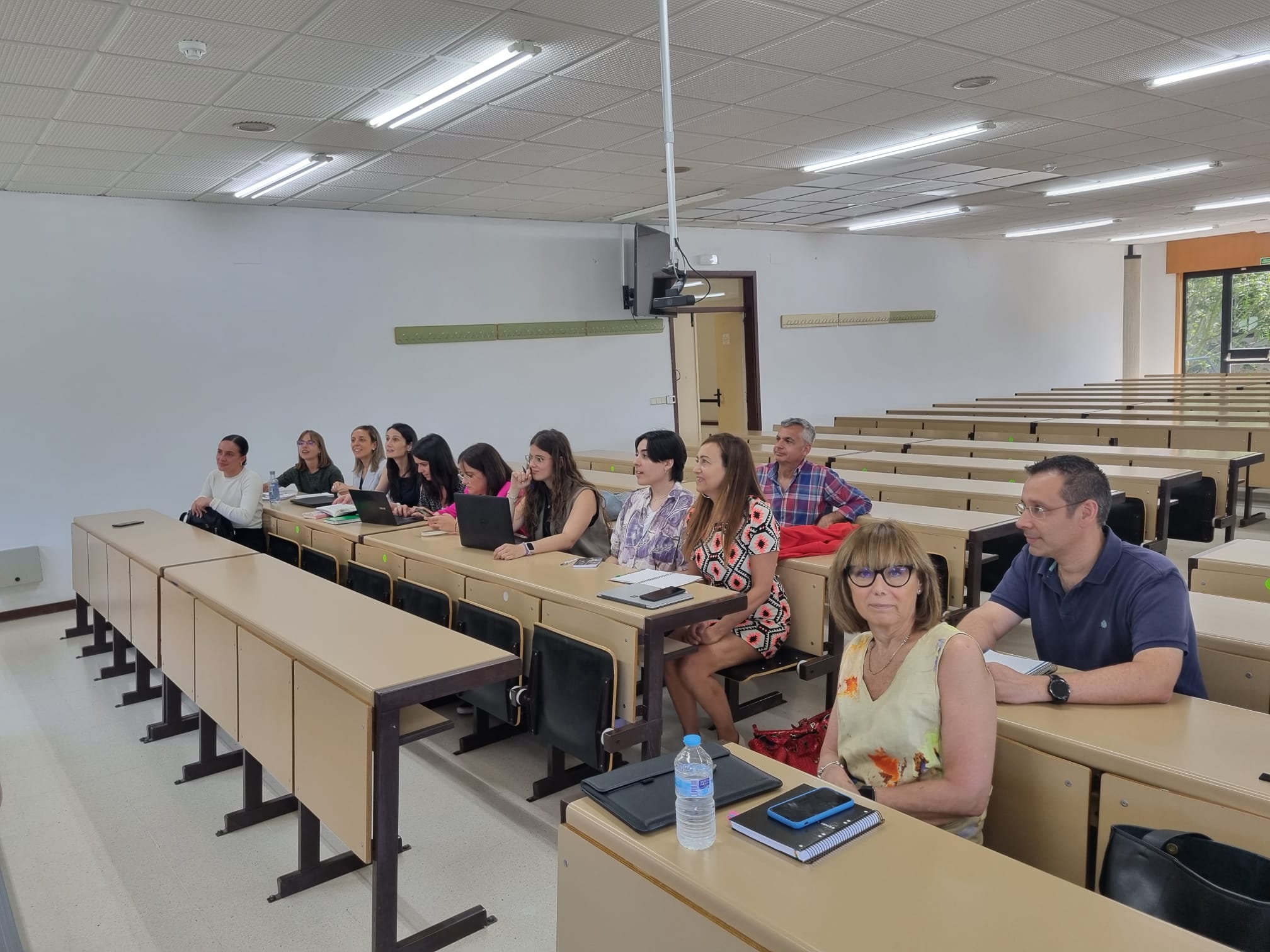
Publications
- Gómez González, M. Á. [Forthcoming]. What Apps? Evaluating Current Applications for Learning English Pronunciation. In J. Belda & J. R. Calvo (Eds.), Contributions on Linguistics and Language Teaching. Peter Lang.
- Gómez González, M. Á & Lago Ferreiro, A. (2024). Computer Assisted Pronunciation Training (CAPT): An empirical evaluation of EPSS Multimedia Lab. Language Learning & Techonology. 28(1), 1-44. https://hdl.handle.net/10125/73565
- Gómez González, M. Á. & Lago Ferreiro, A. (2024). Developing a comparative model of predicted associations for invariable question tag types in British English and European Portuguese. In A. Baicchi & C. Broccias Cristiano (Eds.) 2023, Constructional and Cognitive Explorations of Contrastive Linguistics. Berlin, Springer. 173-214.
For further details visit e-ProFun webpage.

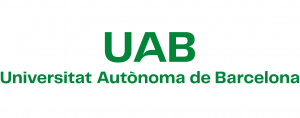

E-learning phonetics for life: English pronunciation in digital environments for Spanish and Galician speaking learners (e-LPHON4L) (Coordinated Project) (PID2019-105678RB-C21 - PID2019-105678RB-C22)
General Coordinator: María de los Ángeles Gómez González
Subproject 1 (S1): Teaching the sounds of English to L2 and L3 learners in digital learning environments (e-LPHON4L: SOUNDS)
PI1: María de los Ángeles Gómez González
PI2: Alfonso Lago Ferreiro
Subproject 2 (S2): Teaching the sounds of English to L2 and L3 learners in digital learning environments (e-LPHON4L: PROSODY)
Funding Entity: National Research Agency, co-financed with FEDER funds of the European Regional Development Funds program
Funding: 71.390,00€
Period: 01/06/2020 – 01/06/2023
Outline: This project pursues three objectives: (1) to develop new training resources in the form of a multi-platform app to improve the English pronunciation and foster phonological awareness and intercultural understanding; (2) to train users-including teachers, learners, and researchers in the materials and data derived from the project; (3) to produce educational materials and high quality research publications based on data culled from Digital and Learning Analytics, as well as Education / Learning Technologies. Besides, our results will be shared with the general public, which will not only enhance the visibility of interdisciplinary research (uniting insights from Digital Humanities, e-Learning, m-Learning and Communication Technologies) but will also empower the communicative competence of our society.
Research/Work Team:
S1: Dr María de los Ángeles Gómez González (USC), Dr Alfonso Lago Ferreiro (UVigo), Dr Cristina Castillo Rodríguez (UMA), Dr Inmaculada Clotilde Santos Díaz (UMA), Dr Milagros Torrado Cespón (UNIR), Dr José María Díaz Lage (UNIR), Dr María José Rodríguez Malmierca (CESGA), BS Diego Nieto Caride (CESGA), Dr Xosé Luis Regueira Fernández (USC), Dr Martín Llamas Nistal (UVigo), Dr Carlos Vaz de Carbalho (PI Porto), Bronwen Evans (UCL), Elisabetta Adami (University of Leeds).
S2: Jesús Romero Trillo (AUM), María Dolores Ramírez Verdugo (AUM), Eva M. Mestre Mestre (UPV), MA Raúl Jiménez Vilches (AUM), Nancy Ávila Ledesma (UnEx), MA Pauline Madella (University of Brighton).
SUMMARY OF RESULTS
Being an international benchmark in the design of EFL digital tools for Spanish speakers by developing the EPSS method (English Pronunciation for Speakers of Spanish) in prior projects, Subproject (S1) has focused this time on providing a holistic vision of segmental phonetics following EPSS but incorporating the serious games approach. The main goal of S1 has been the development of two cross-platform digital applications (Windows, Apple): e-SoundWay: Free Roaming (secondary education) and e-SoundWay: The Route (higher education). These apps will provide relevant and adequate audiovisual materials for e-learning and m-learning throughout more than 600 interactive and multimedia minigames designed with the collaboration of (inter)national intersecting groups (linguists, historians, technologists, musicians, artists, etc.). The two e-SoundWay apps propose different formative paths to learn the sounds and prosody of the English language (and other related matters), with the goal of practicing three phonetic skills: perception/comprehension, production/pronunciation, and transcription, in order to enhance speaking, writing, listening, and reading skills, in addition to acquiring historical and cultural knowledge by following the route of the Camino de Santiago. Furthermore, eight different English accents are practiced through a diverse cast of avatars, accounting for a gender perspective with a female guide-instructor and other historical figures or relevant personalities from the Jacobean route. Both apps include trilingual audiobooks (English, Spanish, Galician), as well as user guides in the three languages. Connections have been established with private companies and several services from the University of Santiago de Compostela (USC) and other institutions to register and optimize the contents of both apps, along with ensuring its transfer in the most efficient way possible.
Numerically, the scientific results of S1 amount to more than 50 (inter)national publications, 15 conference presentations (mainly international), 4 transfer of knowledge results, 2 PhD thesis defenses, and the organization of 4 international scientific events collaboratively with several (inter)national groups with which we have been collaborating on a stable basis, among others.
On the other hand, Subproject S2 is pioneer at an international level in combining the teaching of English prosody (stress, rhythm, intonation) with pragmatics by focusing on objective acoustic parameters. Making use of the linguistic model Prosodic Pragmatics, introduced by the project PI, the research group created a didactic guide and model dialogues that are meant to be used in the learning of English prosody in context. The selected themes for the dialogues are related to the idea of a journey that the user has to embark on and the eventualities that may await him/her.
After pilot testing the materials on learners of English as an L2 and L3, they were incorporated into an application designed for the project called TEPP (Teaching English Prosodic Pragmatics), which is available on IOS and Google Play. The app is designed with a dynamic vision in mind and allows users to record their voice and send the results to the research group for its subsequent feedback and analysis.
The scientific results of S2 have been shared in over 28 international publications, 10 conferences, and 9 international seminars/workshops, as well as 2 PhD defenses and other 2 in progress; there has also been steady communication with several research groups from the United Kingdom. The app has started being used with students from the English Studies degree at the Universidad Autónoma de Madrid and it will be offered to some language schools and secondary high schools.
PID2019-105678RB-C21 MAIN RESULTS


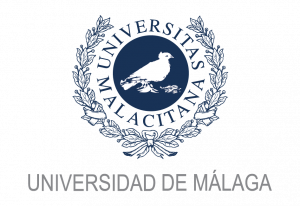
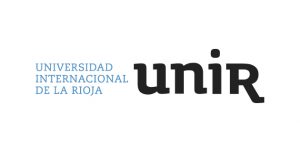

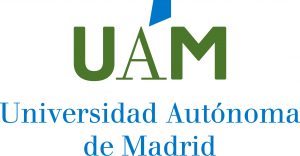


VIEALI-Rioja: Videos formativos y material complementario para la mejora de enseñanza/aprendizaje de la lengua inglesa como lengua extranjera entre los alumnos de bachillerato de la comunidad autónoma de La Rioja (Proyectos propios UNIR 2022-2024)
IP: Dr. Milagros Torrado Cespón
PRESENTATIONS
- Torrado Cespón, M. (2022, Noviembre). Audiovisuales musicados apoyados en pictogramas para la enseñanza aprendizaje de la lengua gallega en la primera infancia. Una propuesta [Presentación]. XXIII Congreso Internacional de la SEDLL, Oviedo, España.
- Torrado Cespón, M. (2023, Marzo). Las listas de verificación como facilitadoras en la educación superior en línea. II Congreso Internacional de Pensamiento, Cultura y Sociedad (virtual).
- Torrado Cespón, M. & Bárcena Toyos, P. (Junio, 2022) La gamificación como alternativa a los test de evaluación continua en CANVAS para los másteres de Educación Bilingüe y TEFL (GAMITEST) [Presentación]. I Jornadas de Innovación y Reflexión sobre la práctica docente, La Rioja, España.
- Torrado Cespón, M. & Díaz Lage, J.M. (2022, November). Cultura y literatura en el Camino con un juego serio sobre los sonidos del inglés [Presentation]. BIUNED- III International Conferences Bilingualism and bilingual education: Sociolinguistic approaches, Madrid, Spain.
PUBLICATIONS
- Torrado Cespón, M. & Díaz Lage, J.M. (2022). Gamification, online learning and motivation. A quantitative and qualitative analysis in higher education. Contemporary Educational Technology, 14(4), ep381. https://doi.org/10.30935/cedtech/12297
- Torrado Cespón, M. & López Pérez, S. (2023). Are you aware of your errors when writing online? Pre-service EFL primary school teachers’ English proficiency tested. In Ó. Ferreiro-Vázquez, A.T. Varajão Moutinho Pereira Correia & S. Lima Gonçalves Araújo (Eds.). Technological innovation put to the service of language learning (pp. 197-212). Germany: Peter Lang. ISBN: 978-3-631-88913-8
Implementación de vídeos instructivos para la mejora de las producciones escritas en inglés como lengua extranjera de estudiantes universitarios en entornos online (VILEO).
Dr. Milagros Torrado Cespón is the main researcher in the project proposal entitled INSTRUCTIONAL VIDEOS IN THE VIRTUAL CLASSROOM FOR THE IMPROVEMENTE OF ONLINE WRITTEN PRODUCTIONS IN ENGLISH AS A FOREIGN LANGUAGE. Retos de investigación UNIR. 2020-2022.
For further information, please visit: https://milagrostorrado198.wixsite.com/entelearn/projects
The Construction of Discourse as Social Interaction: Contrastive Implications and Applications (FFI2013-40517-P)
PI: María de los Ángeles Gómez González
Period: 01-01-2014 – 31-12-2017
Funding Entity: Spanish Ministry of Economy and Competitiveness, co-financed with FEDER funds of the European Regional Development Funds program
Funding:€ 54,450.00
Outline: This project aims to investigate the strategies and processes involved in the construction of discourse as social interaction in English, while building in a substantial element of contrast with other languages (mainly Spanish and Portuguese). The projects adopts an integrated four-dimensional approach: (1) Grammatical construction of discourse; (2) Analysis of the interface between discourse and society; (3) Exploration of the use of constructions in social interaction; and (4) Analysis of advanced discourse competence – complements the third dimension by examining the acquisition of English as a foregin language in both the oral and written medium.
Research/Work Team: Dr María de los Ángeles Gómez González (USC), Dr Teresa Sánchez Roura (USC), Dr Susana María Doval Suárez (USC), Dr Elsa González Álvarez (USC), Dr. Francisco Gonzálvez García (University of Almería), Douglas Biber (Northern Arizona University), Dr Lachlan Mackenzie (Free University of Amsterdam), Dr Mike Hannay (Free University of Amsterdam), Dr María Teresa Taboada Gómez (Simon Fraser University), Hans Boas (University of Texas at Austin), Dawn Archer (Manchester Metropolitan University).

CONTAGRAM Research Network: Contrastive Linguistics: Constructional and Functional Approaches (WO.013. 11N)
CONTAGRAM Research Network: Contrastive Linguistics: Constructional and Functional Approaches (WO.013. 11N)
Coordinator of the coordinating team: Miriam Taverniers
Coordinator of the coordinated team: María de los Ángeles Gómez González
Period: 2011-2016
Funding: € 62,500.00
Outline: Contrastive Linguistics: Constructional and Functional Approaches seeks to promote research on the interaction between contrastive and constructional and/or functional linguistics. Contagram brings together twelve internationally renowned research teams, including SCIMITAR, that work on the intersections contrastive linguistics-language typology and contrastive linguistics-construction grammar/functional linguistics. The network is funded by the Research Foundation – Flanders (FWO).
Research/Work Team: Ghent University: Contragram (coordinating team), Antwerp University: Centre for Grammar, Cognition and Typology; University of Leuven: Franitalco; Université Catholique de Louvain: Centre for English Corpus Linguistics; University of Leiden: Cognitive linguistics and Construction Grammar; University of Edinburgh: Construction Grammar Research Group; University of Bergen: Indo-European Case and Argument structure; Université de Lille 3: STL-Savoirs, Textes, Langage; Université de Caen: Crisco; Universidad Complutense de Madrid: Functional Linguistics English–Spanish and its applications University of Santiago de Compostela: Scimitar; University of Hong Kong: School of English.
Multidimensional Study of the Grammar-Discourse Interface in English Language II (FFI2010-19380)
PI: María de los Ángeles Gómez González
Period: 2011-2014
Funding Entity: Spanish Ministry of Science and Innovation, co-financed with FEDER funds of the European Regional Development Funds program
Funding: € 121,000.00
Outline: This project aims to provide speakers of Spanish with the grammatical and contextual characteristics of different genres or text types in Present-Day English (conversations, television or radio programmes, academic, journalistic or literary texts, etc.), with the goal of improving their communicative competence in this foreign language. In order to attain this objective we shall adopt an integrated multidimensional approach, along four dimensions: (1) the exploration of “functional-cognitive space” with the aim of designing models of linguistic description with an optimum level of descriptive and explanatory adequacy (Functional Discourse Grammar, Systemic-Functional Linguistics, Construction Grammar, Fragment Grammar); (2) the analysis of “marked constructions” in English concerning the left and right periphery of the sentence, from a theoretical and applied (acquisitonal) perspective; (3) the study of cohesion strategies across different discourse types; and (4) the design of teaching and learning materials to improve English pronunciation targetting speakers of Spanish and Galician.
Research/Work Team: Dr María de los Ángeles Gómez González (USC), Dr Susana María Doval Suárez (USC), Dra. Elsa González Álvarez (USC), Dr. Francisco Gonzálvez García (University of Almería), Dr Christopher Stuart Butler (University of Cardiff-Swansea), Dr. Lachlan Mackenzie (Free University of Amsterdam), Mike Hannay (Free University of Amsterdam), Dr María Teresa Taboada Gómez (Simon Fraser University), BA Ana Patricia García Varela (USC), BA Ana Patricia García Varela (USC)
Grammar, Discourse and Communicative Skills in English Language. An Integrated Multidisciplinary Approach (09PXIB204155PR)
PI: María de los Ángeles Gómez González
Period: 2/12/2009-2/12/2012
Funding Entity: Autonomous Government of Galicia, Xunta de Galicia
Funding:€ 55,566.00
Outline: This project complements grant FFI2010-19380. It aims to provide speakers of Galician and Spanish with the grammatical and contextual characteristics of different genres or text types in present-day English in their communicative contexts (conversations, television or radio programmes, academic, literary or journalistic texts, etc.), with the goal of improving their communicative competence in this foreign language. In order to attain this objective we shall adopt an integrated multidisciplinary approach, along four dimensions: (1) the exploration of functional-cognitive space with a special focus on (a) Functional Discourse Grammar, (b) Systemic-Functional, Linguistics, (c) Construction Grammar, (d) Fragment Grammar; (2) the anlysis of movement constructions (preposing and postposing) and complementation constructions; (3) the scrutiny of two discourse construction strategies, namely cohesion and subjectivity; and (4) the design of teaching and learning materials to improve English pronunciation targetting speakers of Spanish and Galician.
Research/Work Team: Dr María de los Ángeles Gómez González (USC), Dr Susana María Doval Suárez (USC), Dra. Elsa González Álvarez (USC), Dr. Francisco Gonzálvez García (University of Almería), Dr Christopher Stuart Butler (University of Cardiff-Swansea), Dr. Lachlan Mackenzie (Free University of Amsterdam), Mike Hannay (Free University of Amsterdam), Dr María Teresa Taboada Gómez (Simon Fraser University), BA Ana Patricia García Varela (USC), BA Ana Patricia García Varela (USC).
Comparative Study of the Grammar-Discourse Interface in English, with a particular focus on coherence and subjectivity (HUM2007-62220)
PI: María de los Ángeles Gómez González
Period: 11/06/2008 – 30/09/2010
Funding Entity: Spanish Ministry of Science and Technology, co-financed with FEDER funds of the European Regional Development Funds program
Funding:€ 37,182.09
Outline: Our general aim is to describe the Grammar-Discourse interface, that is, to analyse various aspects of the grammar of Present-Day English in its communicative contexts, using a comparative or contrastive methodology based on the concept of paradigmatic and syntagmatic opposition, (a) in different registers of English (intralinguistic contrasts) and (b) comparing variations of English with other languages, mainly Castilian Spanish (interlinguistic contrasts), with the aim of determining different aspects of intra- and interlinguistic variability. We shall also apply the analytical tools afforded by corpus linguistics and computational linguistics, basically for the automatic extraction of linguistic data and the statistical analysis of frequency distributions using multivariate statistical techniques which will allow us to explicate the interface under analysis, basing our conclusions on the evidence of the data obtained.
Research/Work Team: Dr María de los Ángeles Gómez González (USC), Dr María Dolores Gómez-Penas (USC), Dr Susana María Doval Suárez (USC), Dra. Elsa González Álvarez (USC), Dr Andrew Rollings (USC), Dr. Francisco Gonzálvez García (University of Almería), Dr Christopher Stuart Butler (University of Cardiff-Swansea), Dr. Lachlan Mackenzie (Free University of Amsterdam), Mike Hannay (Free University of Amsterdam), Dr María Teresa Taboada Gómez (Simon Fraser University), BA/MA María Teresa Lorenzo Penedo (USC)
Discourse Analysis in English: Aspects of cognition, typology and L2 acquisition (PGIDIT03PXIC20403PN)
PI: María de los Ángeles Gómez González
Period: 01/08/2003 hasta: 30/09/2005
Funding Entity: Autonomous Government of Galicia, Xunta de Galicia
Funding: €13,000.00
Outline: This project complements grant BFF2002-02441. Our goal is also twofold. One, we shall scrutinize the formal characteristics of different text types and genres in present-day English across written and spoken varieties ((ortho)graphic, phonetic, lexico-semantic, morfo-syntactic, and discoursive), paying particular attention to questions of cohesion, coherence and subjectivity. And two, we shall investigate the difficulties of acquisition ( subtitution, transposition, additon or omission) that such dimensions pose to speakers of Galician in order to improve their performance across the aforementioned varieties.
Research/Work Team: Dr María de los Ángeles Gómez González (USC), Dr María Dolores Gómez-Penas (USC), Dr Susana María Doval Suárez (USC), Dra. Elsa González Álvarez (USC), Dr Andrew Rollings (USC), Dr Christopher Stuart Butler (University of Cardiff-Swansea), Dr. Lachlan Mackenzie (Free University of Amsterdam), Dr. Francisco Gonzálvez García (University of Almería), Dr María Teresa Taboada Gómez (Simon Fraser University), BA/MA María Teresa Lorenzo Penedo (USC).
Discourse Analysis in English: Aspects of cognition, typology and L2 acquisition (BFF2002-02441)
PI: María de los Ángeles Gómez González
Period: 01/12/2002 – 30/11/2005
Funding Entity: Spanish Ministry of Science and Technology, co-financed with FEDER funds of the European Regional Development Funds program
Funding: €29,960.00
Outline: Our aim in this project is twofold. On the one hand, we intend to uncover the formal characteristics of different text types and genres in present-day English across written and spoken varieties ((ortho)graphic, phonetic, lexico-semantic, morfo-syntactic, and discoursive), paying particular attention to questions of cohesion, coherence and subjectivity. On the other hand, we shall describe the difficulties of acquisition (subtitution, transposition, additon or omission) that such dimensions pose to speakers of Spanish in order to improve their performance across the aforementioned varieties.
Research/Work Team: Dr María de los Ángeles Gómez González (USC), Dr María Dolores Gómez-Penas (USC), Dr Susana María Doval Suárez (USC), Dra. Elsa González Álvarez (USC), Dr Andrew Rollings (USC), Dr Christopher Stuart Butler (University of Cardiff-Swansea), Dr. Lachlan Mackenzie (Free University of Amsterdam), Dr. Francisco Gonzálvez García (University of Almería), Dr María Teresa Taboada Gómez (Simon Fraser University), BA/MA María Teresa Lorenzo Penedo (USC).
Discourse Analysis in English: Synchronic and contrastive aspects with especial reference to Galician and/or Spanish (PGIDT00PXI2040PR)
PI: María de los Ángeles Gómez González
Period: 01/10/2000 hasta: 01/10/2002
Funding Entity: Autonomous Government of Galicia, Xunta de Galicia
Outline: Our goal in this project is to compare and contrast different genres and text types in Present-Day English and Galician and/or Spanish across the written-spoken divide. The analysis will intend to include all levels of linguistic description: (ortho)graphic, phonetic, lexico-semantic, morfo-syntactic, and discoursive. The approach will be descriptive and applied from the point of view of language acquisition.
Research/Work Team: Dr María de los Ángeles Gómez González (USC), Dr Susana María Doval Suárez (USC), Dra. Elsa González Álvarez (USC), Dr. Francisco Gonzálvez García (University of Almería), BA/MA María Teresa Lorenzo Penedo (USC).
For other research grants, please check the individual entries for each researcher at https://scimitar.es/index.php/research-team/ or the relevant section of the Discourse & Identity research group of which the SCIMITAR team is a member: https://discursoeidentidade.com/?page_id=1178.